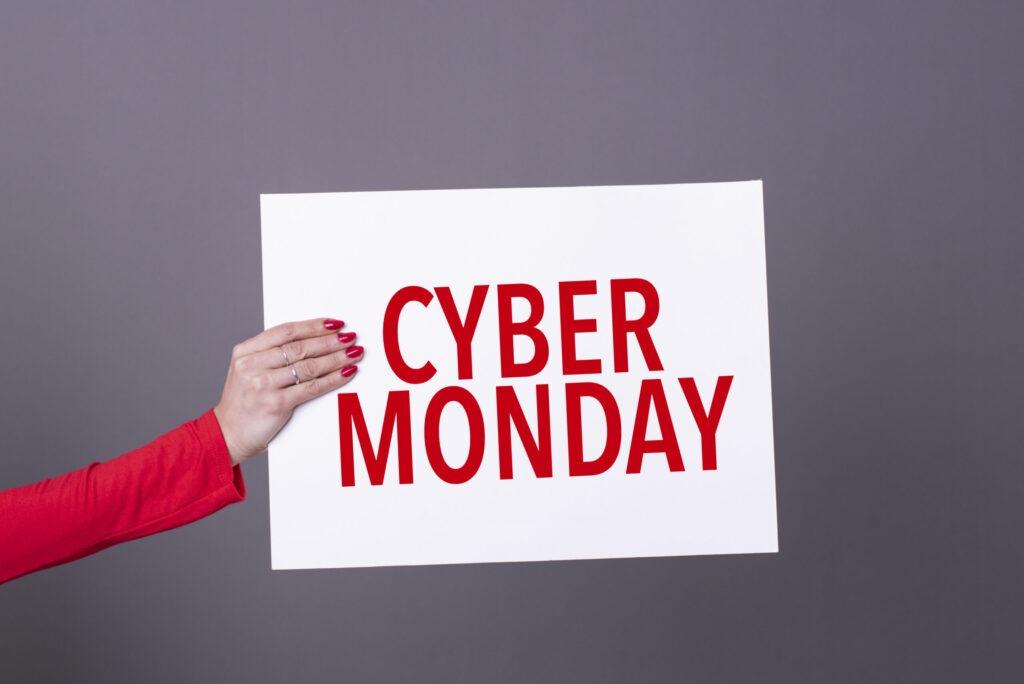In the entrepreneurial world, especially among technology startups, navigating the complexities of trademark law is a critical aspect of establishing and protecting a brand. One common area of confusion and interest revolves around the use of widely recognized terms, particularly in the context of marketing and sales events. Two such terms that often come under scrutiny are “BLACK FRIDAY” and “CYBER MONDAY.” These phrases are synonymous with major shopping events, but the question arises: are they protected under trademark law? This blog aims to explore this question, shedding light on the nuances of trademark protection and how it applies to these popular terms.
The Essence of Trademark Protection
Before diving into the specifics of “BLACK FRIDAY” and “CYBER MONDAY,” it’s essential to understand what trademark protection entails. Trademarks are symbols, words, or phrases legally registered or established by use as representing a company or product. They are crucial in distinguishing a brand’s products or services from those of others, ensuring that consumers can identify the source of a product or service.
Under the Trademark Manual of Examining Procedure (TMEP) Rule §1052(e)(1), a mark must not be merely descriptive or deceptively misdescriptive of the goods or services to which it relates. A mark is considered merely descriptive if it directly describes an ingredient, quality, characteristic, function, feature, purpose, or use of the specified goods or services. This rule is pivotal in understanding the trademark status of any term, including “BLACK FRIDAY” and “CYBER MONDAY.”
The Case of “BLACK FRIDAY” and “CYBER MONDAY”
“BLACK FRIDAY” and “CYBER MONDAY” have become ubiquitous in the lexicon of shoppers and retailers alike. Originating in the United States, “BLACK FRIDAY” refers to the day after Thanksgiving, which traditionally marks the beginning of the Christmas shopping season, while “CYBER MONDAY” refers to the Monday following Thanksgiving, known for online shopping deals.
Given their widespread use and recognition, one might assume that these terms are protected under trademark law. However, the reality is more nuanced. The primary function of a trademark is to signify the source of goods or services. In the case of “BLACK FRIDAY” and “CYBER MONDAY,” these terms have become so commonly used that they do not distinctly point to a specific source or brand. Instead, they refer to a general period of sales that numerous retailers participate in.
According to TMEP Rule §1052(e)(1), the descriptiveness of a mark is a key factor in determining its eligibility for trademark protection. In this context, “BLACK FRIDAY” and “CYBER MONDAY” are merely descriptive. They describe a time-related feature of the services (i.e., sales events) offered by various retailers. These terms do not inherently identify the source of the goods or services but rather describe when these services are offered.

Implications for Entrepreneurs and Marketers
For entrepreneurs and technology startups, this understanding is crucial when it comes to branding and marketing strategies. Using terms like “BLACK FRIDAY” and “CYBER MONDAY” in advertising and promotions is generally not a trademark infringement, as these terms are not protected as trademarks due to their descriptive nature. This means that businesses are free to use these terms in their marketing materials without fear of infringing on someone else’s trademark rights.
However, it’s important to note that while the terms themselves may not be trademarked, how they are used in conjunction with other branding elements could potentially raise trademark issues. For instance, if a company were to use these terms in a way that creates a unique brand identity or implies an association with a specific source, it could potentially cross into trademark territory.
Best Practices for Using Descriptive Terms
When using widely recognized descriptive terms like “BLACK FRIDAY” and “CYBER MONDAY,” businesses should:
- Ensure Clear Context: Use these terms in a way that clearly relates to the event or period they describe, without implying any unique source or brand association.
- Avoid Unique Branding Combinations: Be cautious not to combine these terms with other unique branding elements in a way that could create a new, potentially trademarkable phrase or logo.
- Stay Informed on Trademark Laws: Keep abreast of any changes in trademark laws or specific rulings that might affect the use of these terms.
Conclusion: Navigating Trademark Waters with Expert Guidance
While the trademark rules surrounding terms like “BLACK FRIDAY” and “CYBER MONDAY” may seem straightforward given their descriptive nature, trademark law is not always intuitive. It is a highly mechanical field, with specific rules and nuances that can significantly impact a business’s marketing and branding decisions.
For entrepreneurs and startups, especially those in technology and e-commerce, understanding these nuances is key to navigating the legal landscape of trademark protection successfully. However, given the complexities of trademark law, consultation with an experienced trademark attorney is highly recommended. An expert can provide tailored advice and guidance, ensuring that your use of certain words or phrases in marketing is legally sound and aligns with your overall brand strategy.
In conclusion, while “BLACK FRIDAY” and “CYBER MONDAY” may not be protected as trademarks due to their descriptive nature, the use of such terms should still be approached with a clear understanding of trademark law. By consulting with a knowledgeable trademark protection attorney, businesses can confidently navigate these waters, ensuring their marketing strategies are both effective and legally compliant.


